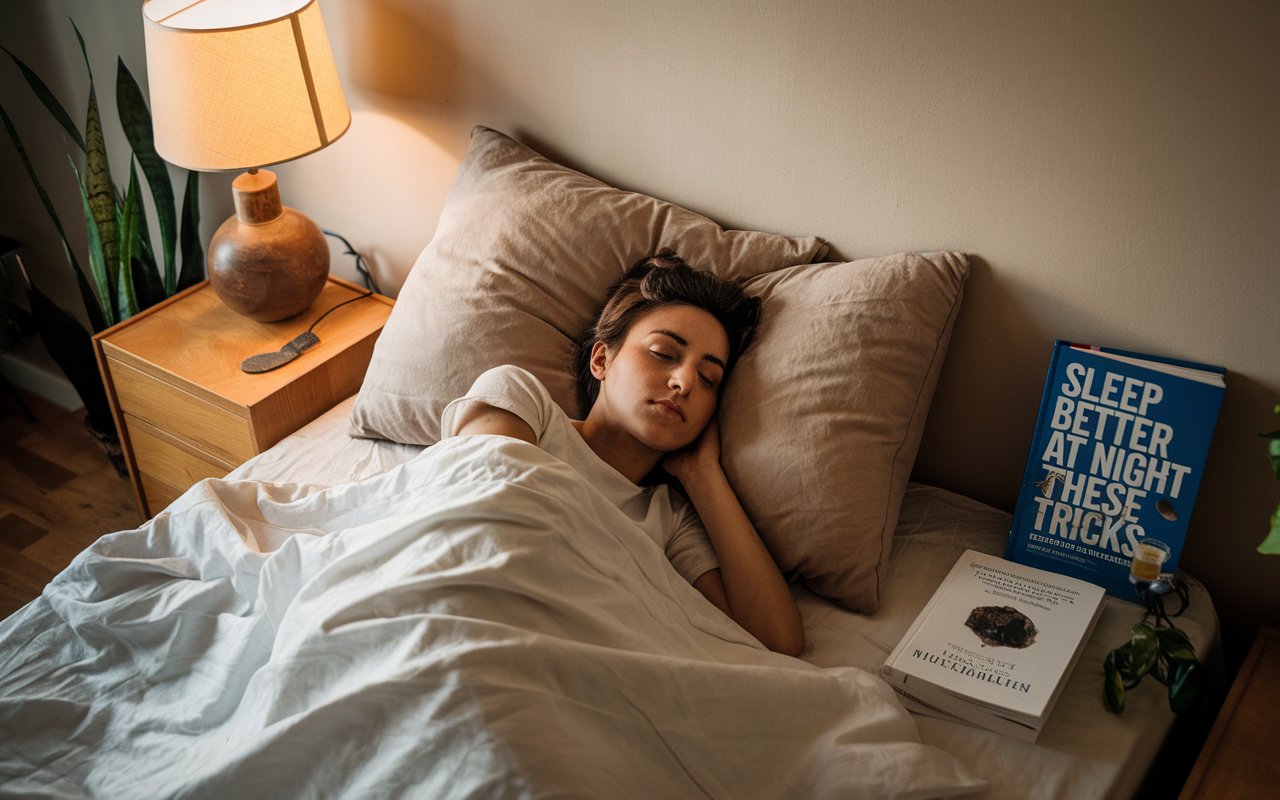A good night’s sleep is important for your health. It keeps your mind and body strong. Sleep affects how you feel and think. If you don’t sleep well, you may feel tired and less focused.
You may even find it hard to stay active during the day. This post will share simple tips for sleeping better. These tricks can help you get restful sleep and wake up feeling refreshed.
1. Establish a Consistent Sleep Schedule
One of the best ways to sleep better is by following a set schedule. Your body has a natural clock, called the circadian rhythm.
It works best when you sleep and wake at the same time every day. Having a consistent schedule trains your body. It helps you fall asleep faster and wake up without feeling groggy.
Try going to bed and waking up at the same time. This habit will help you sleep more easily. Even on weekends, try to stick to your routine.
It may be tempting to sleep in, but this can throw off your body’s clock. Naps during the day can also make it hard to sleep at night. If you need to nap, keep it short and early in the day.
Sticking to a schedule helps your body stay on track. Over time, you may find that falling asleep becomes easier.
You will also wake up feeling more rested. A consistent sleep schedule supports healthy sleep and makes you feel good throughout the day.
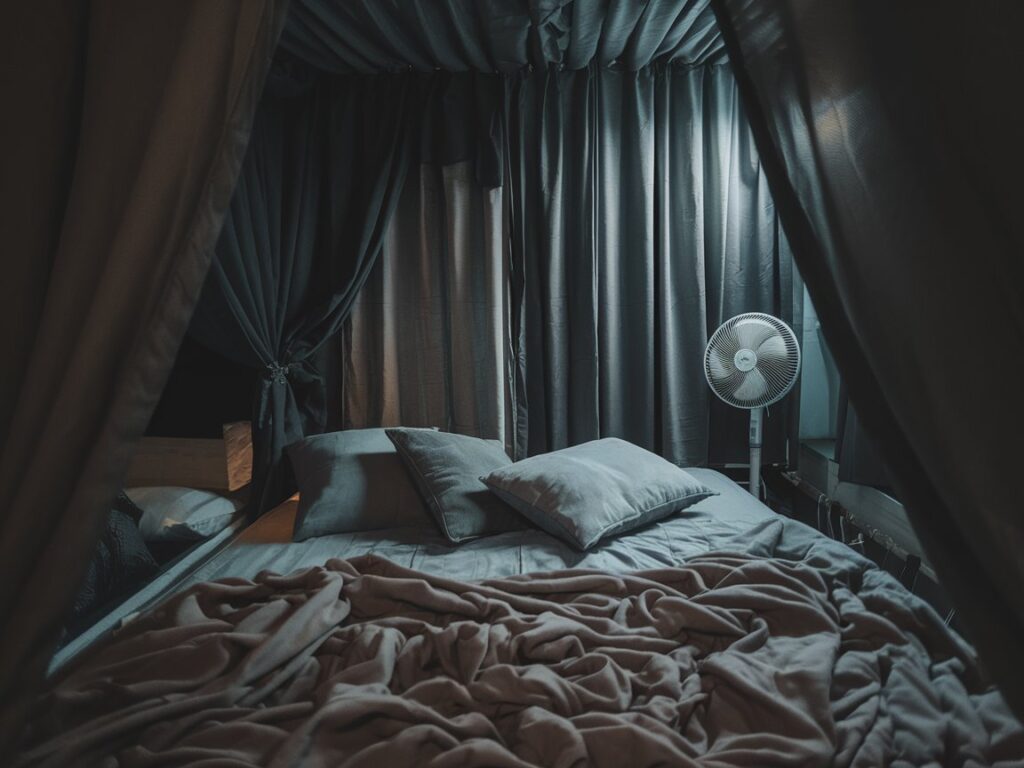
2. Create a Sleep-Friendly Environment
Your bedroom environment plays a big role in how well you sleep. To sleep better, your room should be a calm and restful place. A cool, dark, and quiet room is best for restful sleep.
Try setting the temperature between 60-67°F (15-19°C). This range is ideal for most people to fall asleep comfortably.
Noise can disturb your sleep. Use earplugs or a white noise machine to block sounds. Keeping the room dark is also important.
Try using blackout curtains or an eye mask. This will help your brain signal that it’s time to sleep. Make sure your bed is comfortable, too. A supportive mattress and cozy pillows can make a big difference in how you sleep.
Keeping distractions out of the bedroom is also key. This means leaving your phone and TV outside the room. Your bedroom should only be for sleep.
This will help train your brain to associate your bed with rest. By creating a sleep-friendly environment, you make it easier to relax and fall asleep quickly.
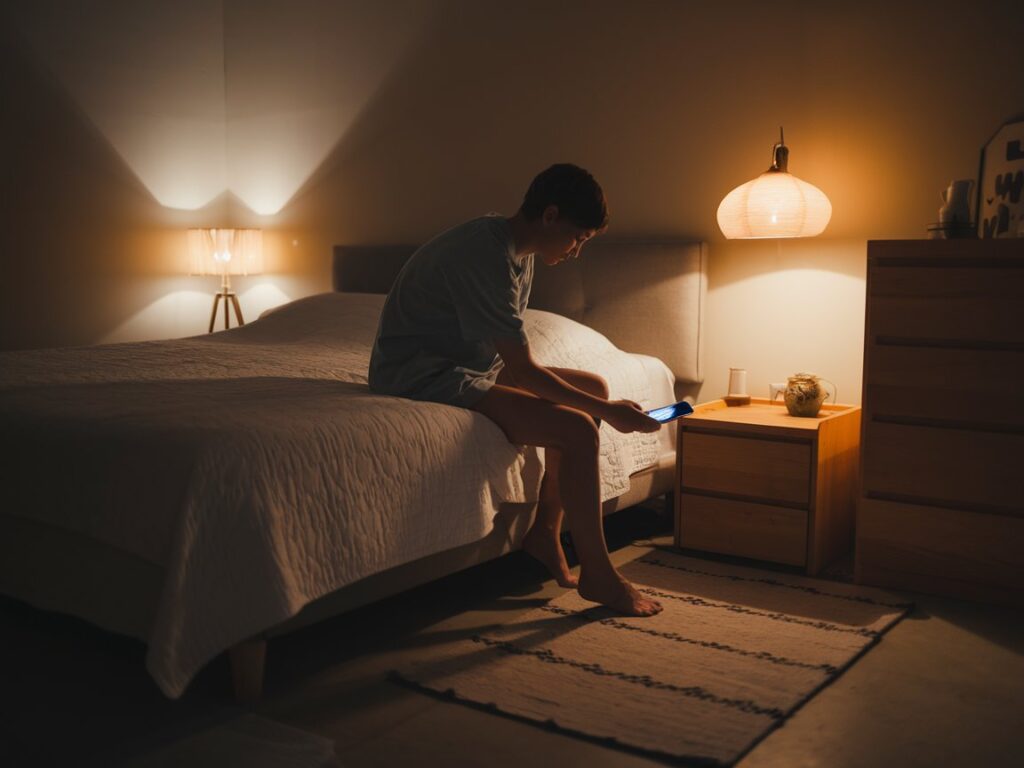
3. Limit Screen Time Before Bed
Many people use their phones or watch TV right before bed. But looking at screens can make it hard to sleep. The blue light from screens blocks a hormone called melatonin.
Melatonin helps your body know when to sleep. When you stare at a screen, it confuses your brain, making you feel awake.
To avoid this, try turning off screens at least an hour before bed. Instead of scrolling on your phone, try reading a book or listening to calming music.
This gives your brain time to wind down. If you need to use your phone or computer at night, you can turn on night mode. This lowers the blue light, which may help a bit.
Setting a bedtime without screens helps your mind relax. Your body will start to feel sleepy when it’s time for bed. Limiting screen time at night is a simple trick that can make falling asleep easier.
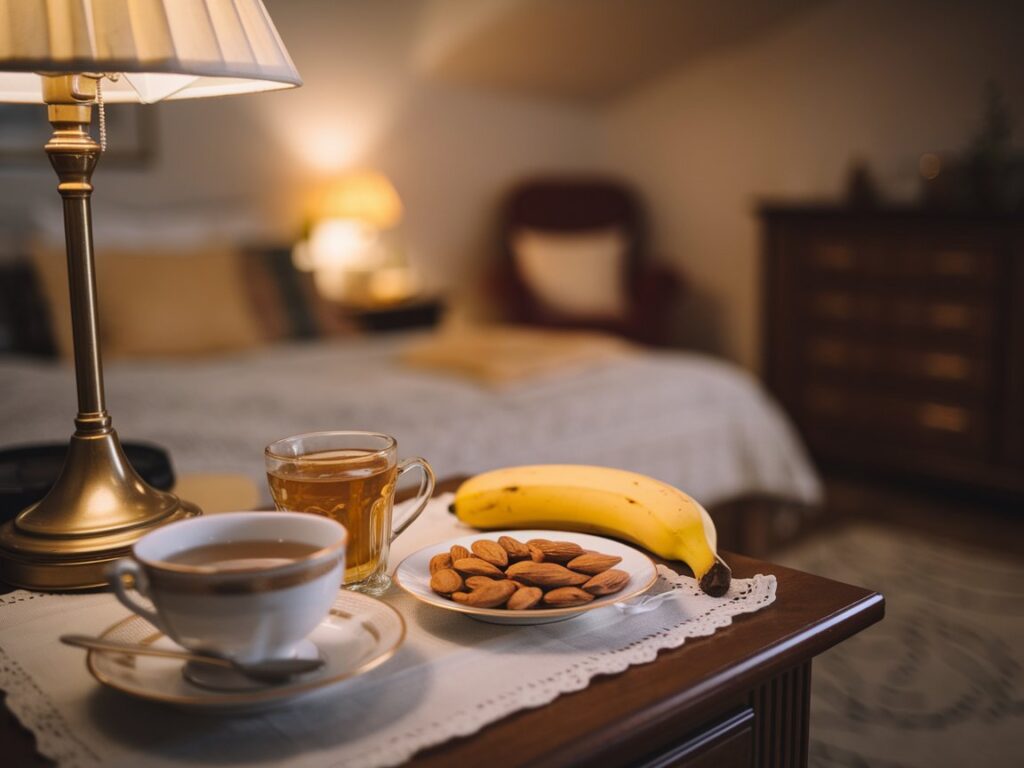
4. Be Mindful of What You Eat and Drink
What you eat and drink during the day can affect your sleep. Certain foods and drinks can make it hard to fall asleep. Caffeine and alcohol are two things to watch out for. Caffeine is found in coffee, tea, and even chocolate.
It can keep you awake, so avoid it in the late afternoon and evening. Alcohol, on the other hand, may make you feel sleepy at first. But it can disrupt your sleep later in the night.
Eating heavy meals right before bed can also cause problems. A large meal can make you uncomfortable, making it hard to fall asleep. Try eating your dinner a few hours before bedtime.
Choose light, healthy snacks if you feel hungry before bed. Foods like bananas, almonds, and yogurt can help promote sleep.
Drinking too much liquid before bed can also wake you up. You may need to use the bathroom during the night, which can disrupt your sleep. Drinking less in the evening can help you avoid waking up in the middle of the night.
By being mindful of what you eat and drink, you can set yourself up for a better night’s sleep.
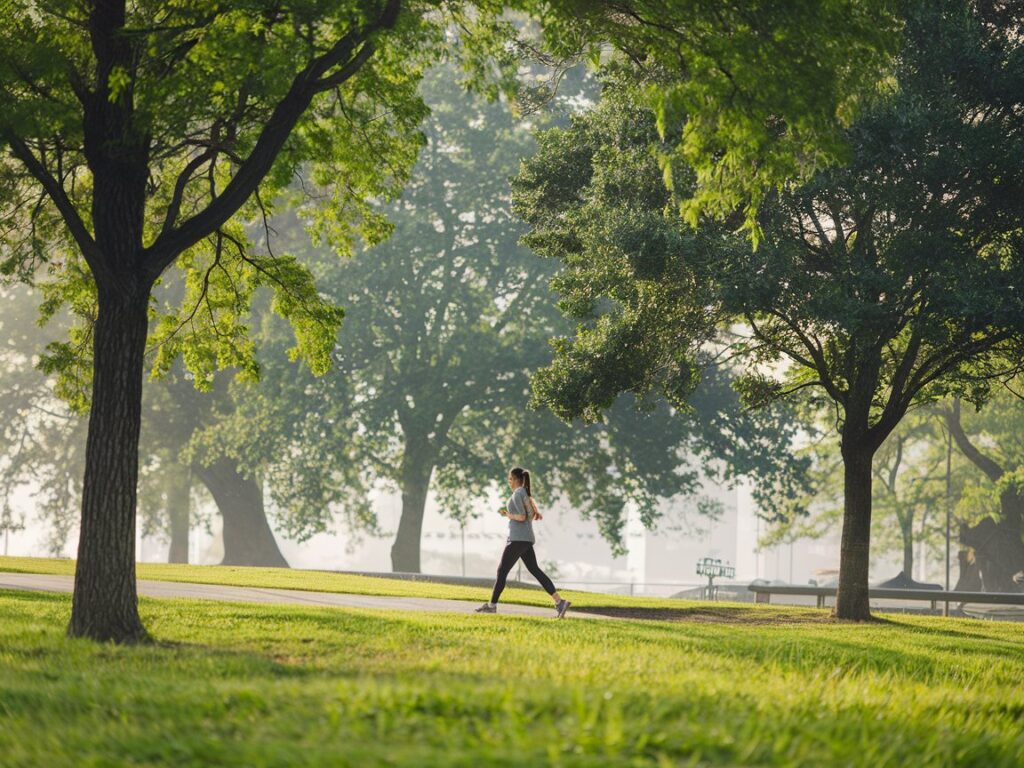
5. Get Moving During the Day
Exercise can have a huge impact on how well you sleep. Being active during the day helps your body burn energy.
It also lowers stress, which can help you sleep better. People who exercise regularly tend to fall asleep faster. They also have deeper, more restful sleep.
The best time to exercise is earlier in the day. Morning or afternoon workouts are ideal. Exercise too close to bedtime, however, can have the opposite effect.
It may make you feel more awake. Try avoiding intense workouts a few hours before bed. Light stretching or yoga in the evening can help you relax.
Getting sunlight during the day is another trick. Exposure to natural light helps regulate your body’s clock. Try spending some time outside in the morning or early afternoon.
Staying active during the day makes it easier to wind down at night. It’s a simple way to improve your sleep without much effort.
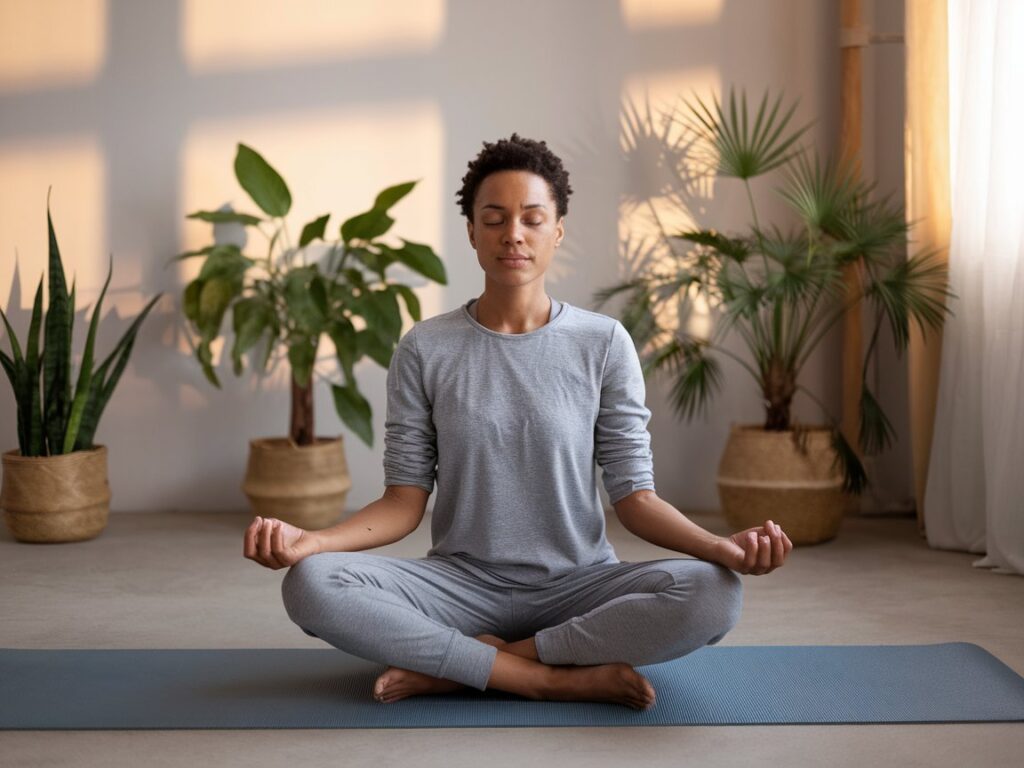
6. Relaxation Techniques to Unwind
Sometimes it can be hard to quiet your mind before bed. Stress, worry, and anxiety can make it hard to sleep. Relaxation techniques can help calm your mind. Meditation is one method that many people find helpful.
Focus on your breathing and clear your thoughts. Deep breathing can also help you relax. Breathe in and out slowly, focusing on each breath.
Gentle yoga or stretching before bed can help your body relax. It releases tension in your muscles and helps you feel calm. Listening to soft music or nature sounds can also create a peaceful atmosphere.
Reading a book or journaling is another way to relax. Write down any thoughts or worries to clear your mind before sleep.
Finding what helps you relax is key. Everyone is different, so experiment with different techniques.
Incorporating relaxation into your nightly routine can make it easier to fall asleep and improve the quality of your rest.
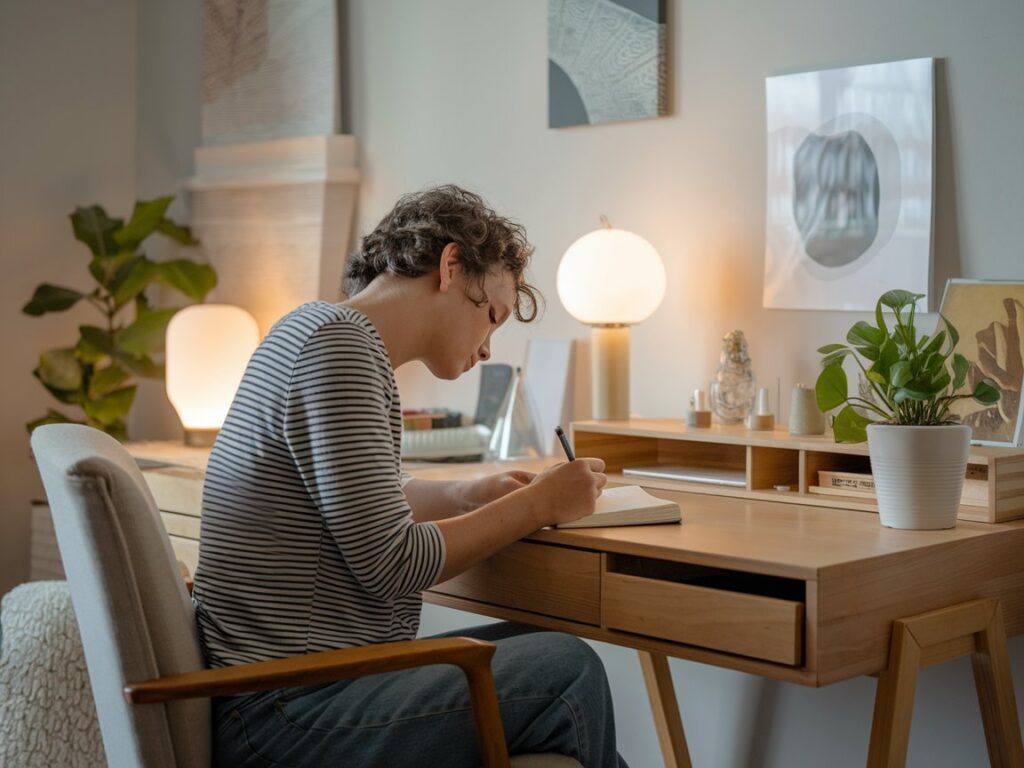
7. Manage Stress Levels
Stress is one of the biggest barriers to sleep. When you’re stressed, your body releases hormones that keep you alert. This makes it hard to fall asleep.
Managing stress is important for better sleep. Journaling is one way to reduce stress. Write down your worries before bed. This helps clear your mind, making it easier to sleep.
Talking to a friend or family member may also be helpful. Sometimes sharing your concerns lifts the burden off your shoulders.
Deep breathing or progressive muscle relaxation are other stress-relief techniques. They help calm both your body and mind. Try focusing on your breathing, or tense and relax each muscle group one at a time.
Creating a bedtime routine can also help manage stress. Doing the same thing every night before bed signals to your brain that it’s time to sleep.
Simple habits, like dimming the lights, can make a big difference. Learning to manage stress will help you sleep better and improve your overall well-being.
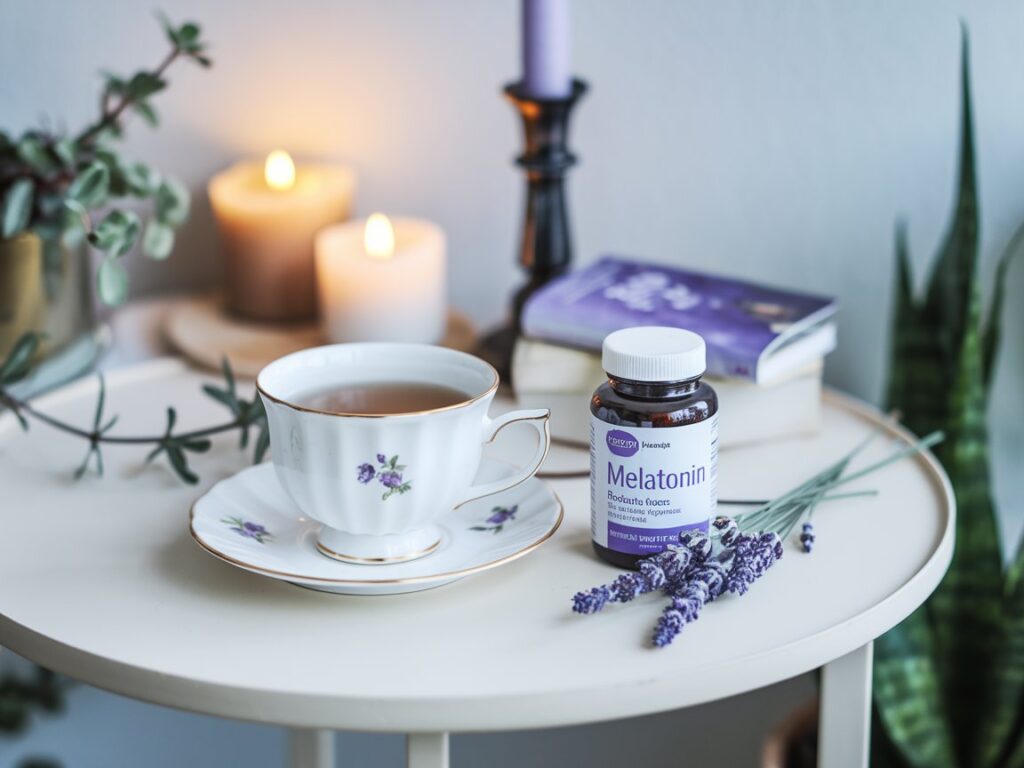
8. Consider Natural Sleep Aids
Sometimes, even with good habits, sleep can still be elusive. In these cases, natural sleep aids can help. Herbal teas like chamomile are known to promote relaxation. Drinking a warm cup of chamomile tea before bed can calm your mind.
Other natural sleep aids include melatonin supplements. Melatonin is a hormone produced naturally by the body. Taking a supplement can help reset your sleep cycle.
Lavender is another natural remedy. The smell of lavender helps with relaxation. Try using lavender essential oil in a diffuser or spray some on your pillow.
While natural sleep aids can be helpful, it’s important to use them wisely. Always start with small amounts and talk to a healthcare provider if needed.
These natural options can support better sleep when used alongside other sleep tricks. They can help you unwind and prepare your body for rest.

Frequently Asked Questions (FAQs)
Key Takeaways
- Set a consistent sleep schedule.
- Make your room sleep-friendly.
- Limit screen time before bed.
- Watch what you eat and drink.
- Stay active with exercise during the day.
- Use relaxation techniques before bed.
- Manage your stress levels.
- Consider natural sleep aids.
Good sleep is vital for your health and well-being. By following these simple tricks, you can improve your sleep and wake up feeling rested.
From setting a consistent schedule to creating a peaceful bedroom, small changes can make a big difference.
